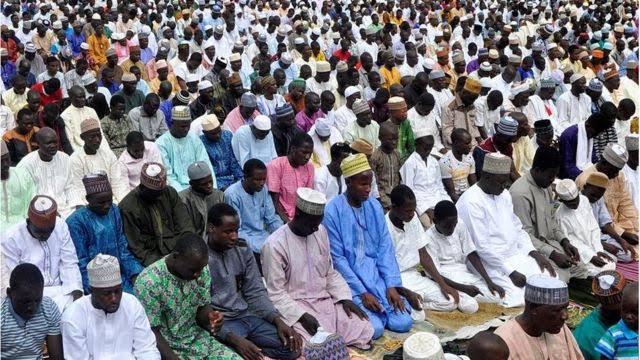Post View : 210
Active Islamic journalism costs huge sums of money. To ensure quality and rich Islamic journalism, the support of readers and friends of the publication is required. Support us by donating via the account details below: Account Name: Standard Bearers Project Account Bank Name: Zenith Bank Account Number: 1014987008 Kindly call or chat; 07031357133 for more enquiry. Jazakum llahu khairan
On the day of Eid-al-Adha, Muslims engage in various religious and cultural activities to celebrate this important festival. Here are some things that Muslims typically do on the day of Eid-al-Adha:
1. Perform the Eid prayer: Muslims attend the congregational Eid prayer in the morning. This prayer is a special communal prayer that is performed in an open area or a mosque. It is an essential part of the celebration and is led by an imam or a designated religious leader.
2. Observe cleanliness: Muslims make sure to cleanse themselves thoroughly by taking a bath or performing ablution before attending the Eid prayer. Cleanliness and hygiene are considered important aspects of worship.
3. Dress in festive attire: Muslims wear their best clothes and dress up in festive attire on the day of Eid. This is done to show joy and happiness for the occasion.
4. Exchange greetings: Muslims greet each other with the phrase “Eid Mubarak,” which means “Blessed Eid” or “Happy Eid.” It is customary to embrace and exchange warm wishes with friends, family, and neighbors.
5. Give to the poor and needy: It is highly encouraged for Muslims to engage in acts of charity on the day of Eid-al-Adha. This can include giving money, food, or other resources to those who are less fortunate. The spirit of giving and sharing is an integral part of this festival.
6. Sacrifice an animal (Qurbani): Muslims who are financially capable perform a sacrificial ritual known as Qurbani. An animal, typically a goat, sheep, cow, or camel, is sacrificed according to Islamic guidelines. The meat from the sacrificed animal is divided into three parts: one part is kept for the family, one part is shared with relatives and friends, and the remaining part is distributed among the poor.
7. Visit family and friends: Eid-al-Adha is a time for families and friends to come together. It is common for Muslims to visit each other’s homes, exchange gifts, and share meals. These visits foster community bonds and strengthen social connections.
8. Enjoy festive meals: Special meals and feasts are prepared on the day of Eid. Families gather to enjoy delicious food and traditional dishes. It is a time of celebration and indulgence in culinary delights.
9. Express gratitude and remember Prophet Ibrahim (Abraham): Muslims reflect upon the story of Prophet Ibrahim (Abraham) and his willingness to sacrifice his son as an act of obedience to God. They express gratitude for the blessings they have received and remember the importance of faith, sacrifice, and submission to God’s will.
10. Spread joy and happiness: Muslims are encouraged to spread joy and happiness on the day of Eid. This can be done by visiting the sick, reaching out to isolated individuals, and engaging in acts of kindness and generosity. Sharing the festive spirit with others is a significant part of the celebration.
Active Islamic journalism costs huge sums of money. To ensure quality and rich Islamic journalism, the support of readers and friends of the publication is required. Support us by donating via the account details below: Account Name: Standard Bearers Project Account Bank Name: Zenith Bank Account Number: 1014987008 Kindly call or chat; 07031357133 for more enquiry. Jazakum llahu khairan
Post View : 210











